40 Things We Accomplished in 2019
We got a lot done this year, and none of it would have been possible without the support of our members and partners. Here are the highlights of what we collectively achieved in the last year.
We listened to our communities' concerns about their streets and published our findings.
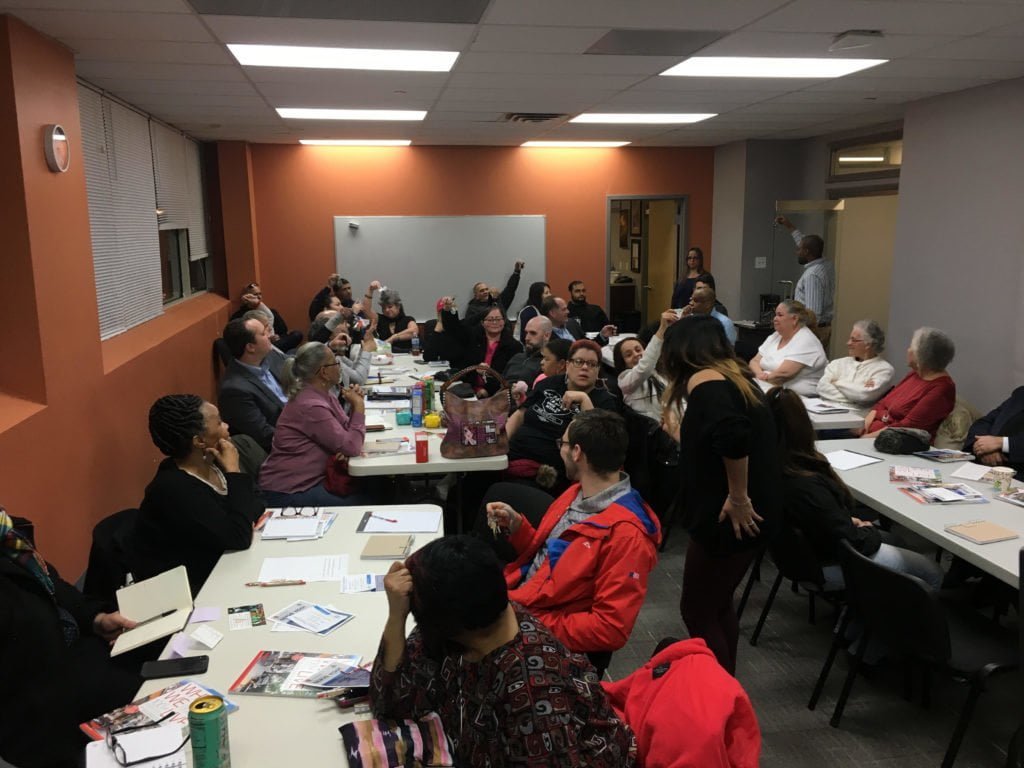
In Fall 2018, the Bicycle Coalition of Greater Philadelphia partnered with PECO Energy and AARP PA to hold several “Listening Sessions” in Philadelphia’s high injury corridors, according to the city’s Vision Zero report. Those meetings ended in early 2019, and we completed a report of what sort of traffic issues neighborhoods were having. Read the full report here.
One of those sessions helped lead to funding for a Neighborhood Slow Zone.
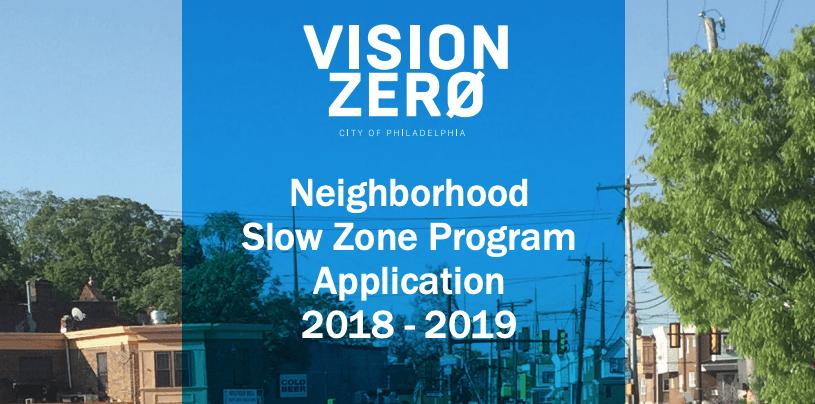
During our Listening Sessions, we partnered with HACE to put on a neighborhood Vision Zero listening session. After the meeting, as was explained at our Vision Zero Conference later that year, HACE got together to apply for one of the city’s upcoming Neighborhood Slow Zones, for the Fairhill neighborhood in North Philadelphia. And then: They won the grant! We are very excited to see the changes come to the Fairhill section of the city.
We cleaned up some bike lanes.

Bicycle Coalition, volunteers, and University City District staff
Our free loading idea became law.
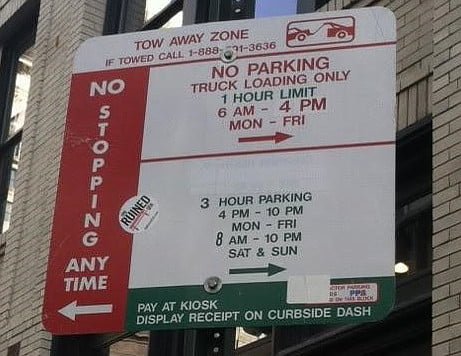
Last year, we had a thought and a solution: There aren’t nearly enough loading zones in Philadelphia, especially on streets with bike lanes. People on bicycles regularly have their rights of way obstructed by delivery vehicles and customers parked in front of stores who promise they’ll be back in “just a minute.” Our solution: Make it easier for businesses on streets with bike lanes to get loading zones installed by eliminating the fee associated for installing a loading zone. Councilperson Kenyatta Johnson liked the idea and introduced it as an ordinance in City Council. After some meetings with Johnson and his staff, the Philadelphia Parking Authority, the City, and others, the bill was voted upon in City Council and became law.
We promoted the free loading zones.
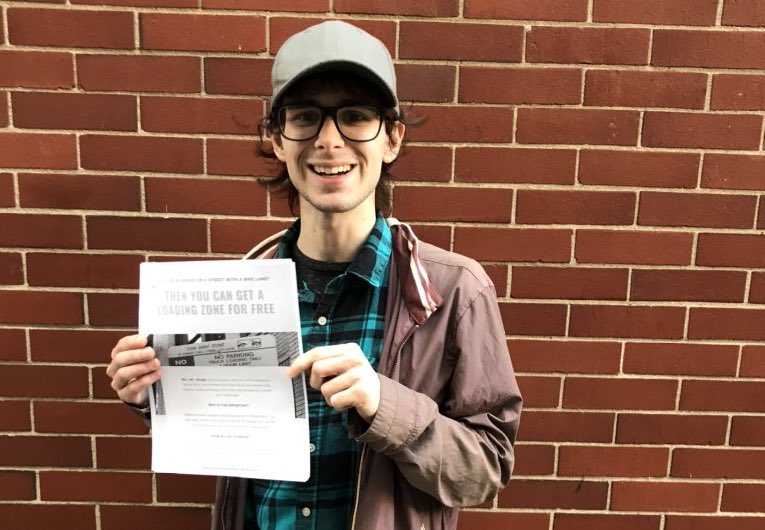
Since you can’t just get a law passed and expect everyone to know about it, we began a publicity campaign around the new loading zone fee law in 2019. In addition to reaching out to community organizations around the city and encouraging them to get the word out to businesses in their areas, we created an information packet and one of our interns headed out during his days here to pass the correct information along. This isn’t one of those immediate solutions to the blocked bike lane issue, but it could help keep some bike lanes clear over the long term. We are currently looking into how to get more loading zones installed in residential neighborhoods, to give delivery companies that block bicyclists’ rights of way, a place to park.
We launched a new website.

Let’s face it: Our website used to have a very 2013 feel to it. That’s because it was made in 2013. This year, we worked with local web development company Key Medium to create a new, intuitive website to better serve our members and supporters. If you’re reading this, you’re probably on said website! Go on, take a look around.
We successfully advocated for HB 792 in the State House.
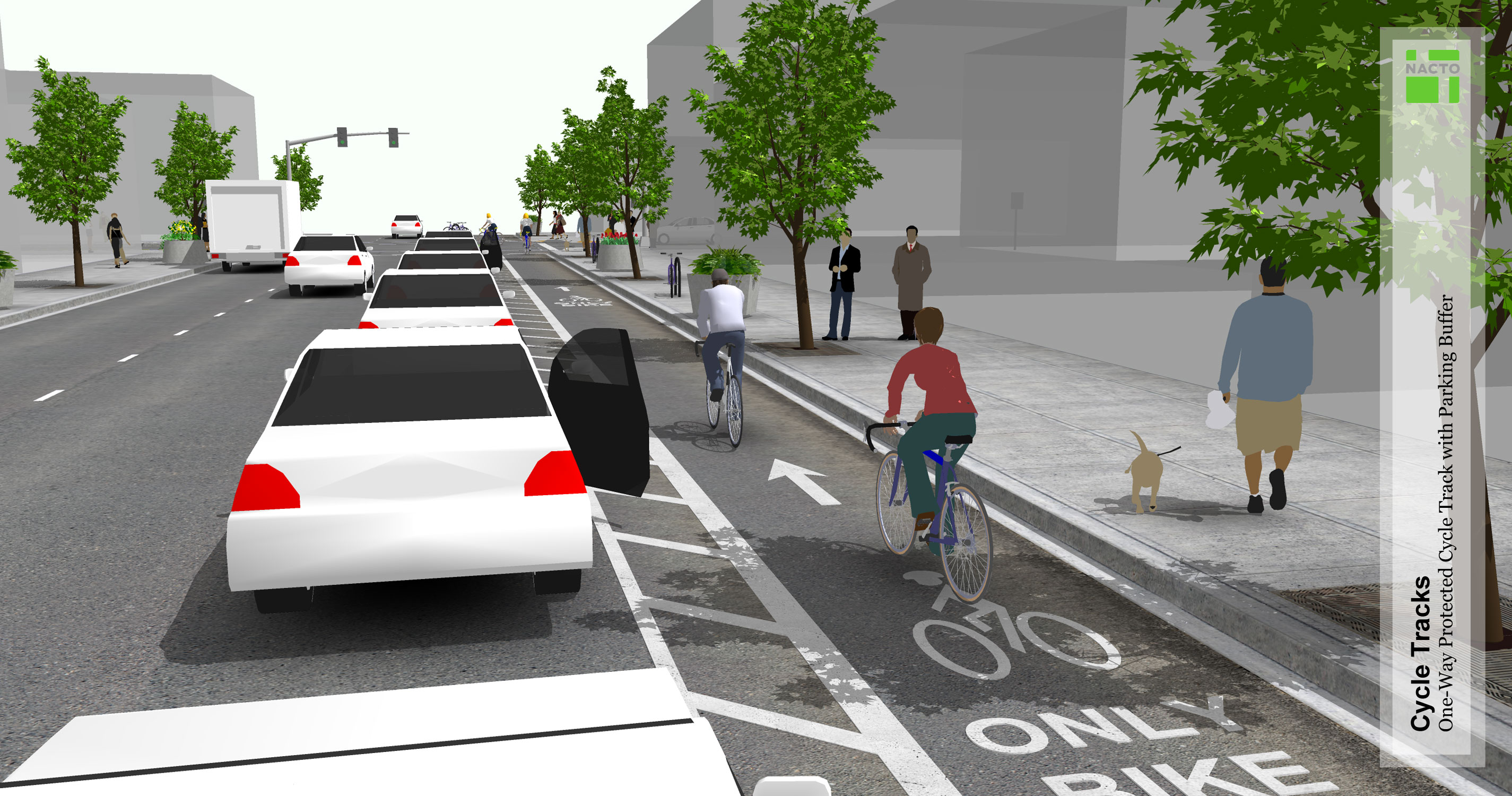
Pennsylvania state law is … weird. There’s a provision in the Vehicle Code that says motor vehicles have to be parked within 12 inches of the curb. Because of that, PennDOT is not willing to install parking-protected bike lanes on its streets in Philadelphia when they repave, unless it’s installed as a pilot. We worked with State Rep. Dave Maloney (R-Berks) and State Sen. Larry Farnese (D-Phila) to introduce legislation that would change the law to allow for parking outside 12 inches of the curb. The House version of the bill was passed by an overwhelming vote of 200-1. We then worked to get the bill through the Senate with trips to Harrisburg. As of the time of this writing, the bill has not yet gotten through the Senate Transportation Committee, but we’ve been working behind the scenes and with other bicycle groups around the state, including Bike Pittsburgh, to get the legislation through the Senate.
We continued that advocacy in the State Senate.
West Chester demos what a protected bike lane could look like, if HB 792 passes.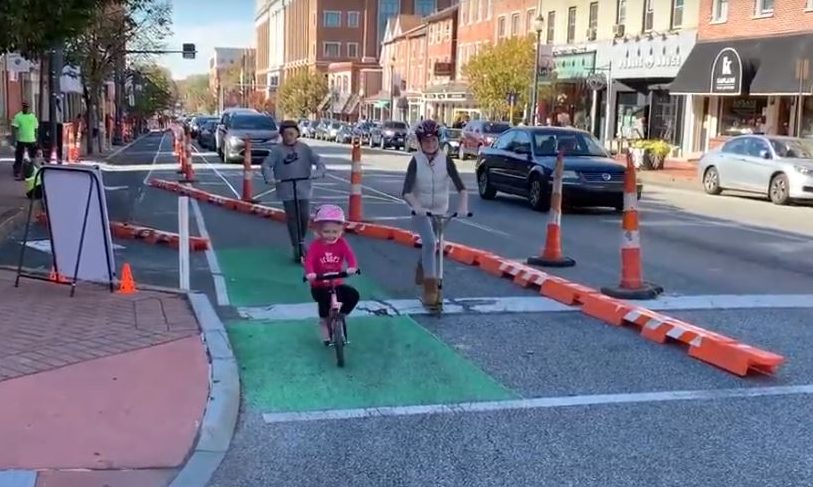
The 11th Street bike lane was implemented, and we conducted outreach to its users and neighbors.

One of the numerous parking-protected bike lane projects that did not require PennDOT’s approval was South 11th Street, between Bainbridge and Reed Streets. The project didn’t happen without some contention coming from drivers, a few of whom were out of control and threatened to kill people at a community meeting. As part of our culture of outreach, the Bicycle Coalition went out to 11th Street, met cyclists, and gave them information about how to watch for pedestrians along the corridor and an update on what additional work was coming to the project.
We helped put together a new transit coalition.

Alongside several Philadelphia area organizations, we set up a new transit-first advocacy organization. We will be the so-called incubating organization and one of the advisory organizations. The organizations that set up this transit-first organization include 5th Square, AARP PA, the Economy League, the Pennsylvania Community Development Corporation, the Clean Air Council, SEIU 32BJ, and the Sierra Club. More information will be announced in the new year.
The incredible female leadership of some of our affiliate groups led a panel at the Philly Bike Expo.

An all-women panel of bike advocates presented on their grassroots efforts to make cycling accessible for all in the region. WHYY was on hand to cover the panel, organized by the Bicycle Coalition. Among the panelists was the founder of the Narberth Cycling Club Kimberley Bezak, founder of Bike Kennett Josie Marsh, Rebecca Kreck of Bike Gloucester County, Hammonton Kickstand Crew’s Alicia Fields-Murphy, and former regional chair of Bike Montgomery County, Alexandria Schneider. The panel was moderated by long-time Bicycle Coalition supporter Anne Gordon.
We mapped unsafe storm drains.

On May 11, 2018, Pablo Avendano was delivering food for Caviar food delivery during a heavy thunderstorm. He was turning left at 10th and Spring Garden Streets when his wheel got caught in a grate that was under water. His bicycle was brought down and he was fatally struck by a vehicle. Wanting to keep all cyclists safe from these inlet grates, we did a visual scan of unsafe inlet grates on select streets with bike lanes between July and October 2019. Our list included: Chestnut St, MLK Drive, 22nd St, Spruce St, Pine St, Center Square, 13th St, Spring Garden St, Washington Ave, Snyder Ave and S. Christopher Columbus Blvd. We found 60 unsafe bicycle inlets, mapped them, and handed the map over to the city. Huge thanks to BCGP volunteer Chuck Aronson for taking the geotagged photos for this project. We plan on expanding upon this work in 2020.
Bicycle Coalition Youth Cycling celebrated the opening of our new Education Center in Fairmount Park.
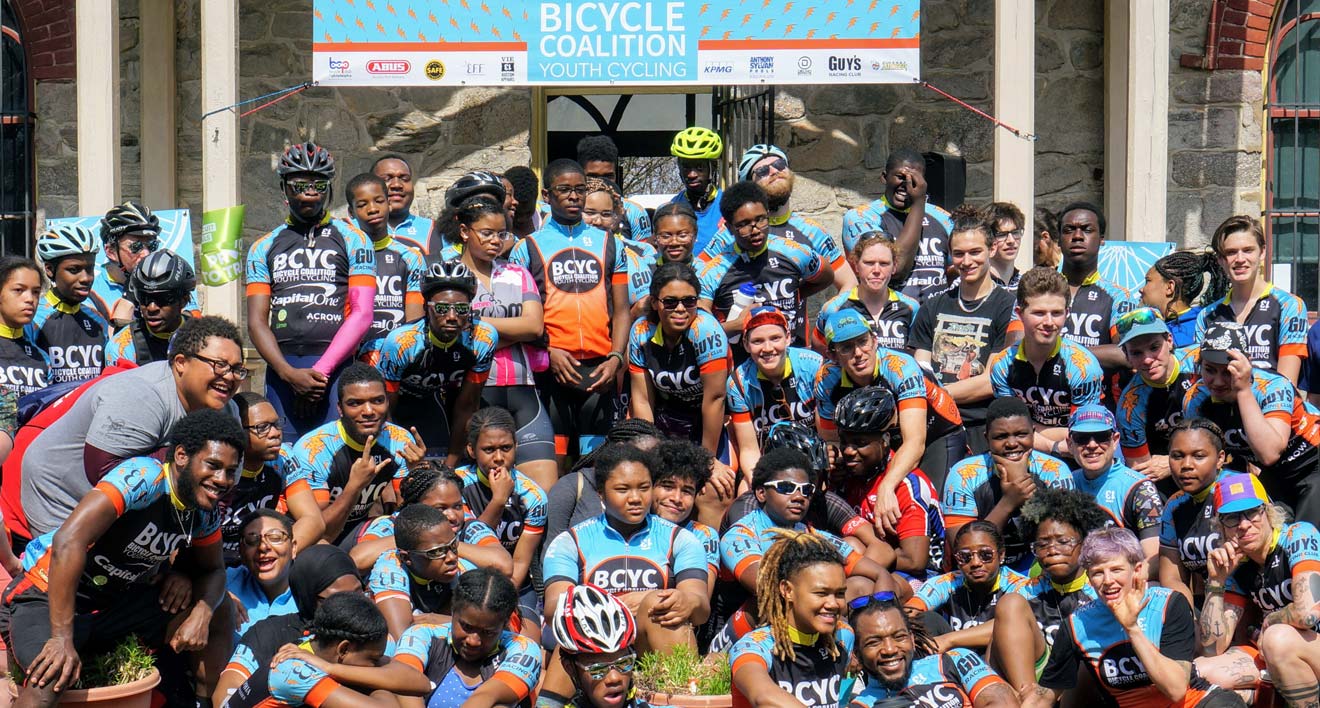
The Bicycle Coalition of Greater Philadelphia expanded into Fairmount Park with the opening of its first park-based cycling education and community center. Housed in the historic Sedgley Porter House on Lemon Hill, the center is a community hub for all of BCGP’s cycling education programs with a special focus on Bicycle Coalition Youth Cycling (BCYC). BCYC fosters healthy habits, leadership, and independence in Philadelphia youth through the sport of cycling. In 2018, BCYC’s program grew exponentially, to over 130 youth across 10 sites in North and West Philadelphia. BCYC Program Manager Taylor Kuyk-White and BCYC Coordinator Kieran Campbell believed the program was ready for its own space and have spent 2019 utilizing it, and the surrounding Fairmount Park area.
In an answer to our prayers (and our advocacy), the Race street gate was fixed.

After a long history of being broken, the gate at Locust Street along the Schuylkill Banks finally opened for good. The problem? The Race Street gate broke! We continued bringing this to the attention of the Streets Department and it was eventually fixed. If you ever notice a problem with the gates along the Schuylkill Banks, continue letting us know.
Delaware Avenue became partially-protected after we launched a petition calling for its protection.

Maybe you’re one of the more than 1,200 people who signed our petition with urbanist PAC 5th Square calling for the protection of Delaware Avenue, between Columbia and Spring Garden Street. The bike lane, especially in front of Johnny Hot’s, a restaurant at Delaware Avenue and Columbia Avenue, was regularly blocked by people in motor vehicles. What made this particular street particularly egregious was that Johnny Hot’s actually has a parking lot! Alongside heavy documentation of the violations by Fishtown resident and activist Denis Devine, we successfully advocated for protection installed in front of the restaurant, with the rest of the recently-repaved street (between Columbia and Spring Garden) to come in the spring.
A new complete streets policy was developed for Montgomery County.
The Montgomery County Commissioners recently announced two new county policies. The “Complete Streets Policy,” developed by Montgomery County Planning Commission (MCPC) and its partners, applies to county-owned roads, bridges, and facilities and calls for MCPC to advocate for a Complete Streets design approach when working with partner agencies on their projects. The Bicycle Coalition participated in the steering committee that helped shape the policy, which requires the consideration of all road users for all county-funded road projects. The new “Health in All Policies Implementation Policy” calls for the county to consider the inclusion of health in all future policy development and implementation, budgeting, and delivery of services.
We launched Families for Safe Streets Greater Philadelphia to promote progress toward Vision Zero.
Families for Safe Streets co-founder Latanya Byrd speaks at Speed Camera Bill Signing Ceremony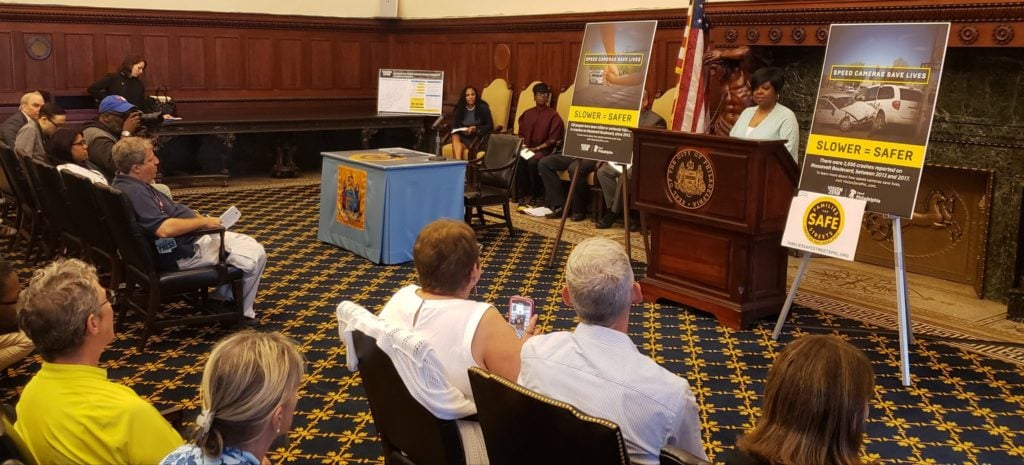
Together, we released the Serving Justice report.

A study by the Bicycle Coalition of Greater Philadelphia and Families for Safe Streets Greater Philadelphia found few, if any, motorists involved in fatal crashes with vulnerable users (pedestrians, bicyclists, and motorcyclists) are ever charged by law enforcement. About 16 percent of people who kill vulnerable road users in Philadelphia are charged after the fact, according to numbers acquired by the Philadelphia Police Department. Thirty percent of the cases we reviewed were closed with no charges and no data was provided for 46 percent of the cases. This report was influential in changing city and police policy, and in launching Families for Safe Streets Greater Philadelphia. Read the full report here.
Families for Safe Streets Greater Philadelphia gathered and demanded answers.
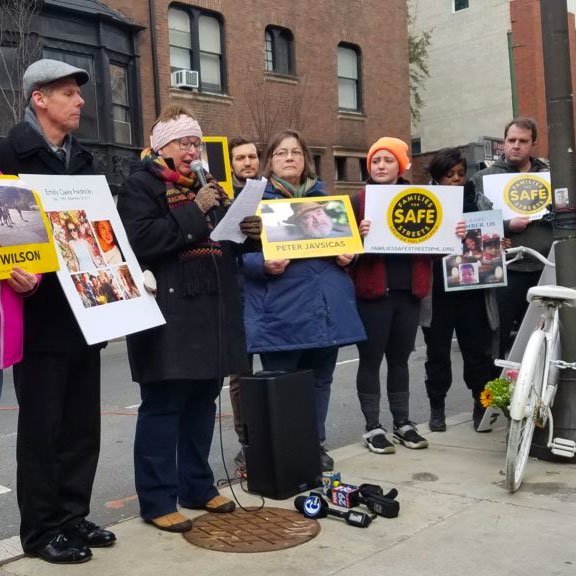
Families for Safe Streets Greater Philadelphia gathered in the cold at 11th and Spruce Streets on a February morning, outlining a list of demands for the City of Philadelphia and law enforcement, alongside several bicyclists and safe streets advocates. While there, FSSGP founding members Laura Fredricks, Anne Javsicas and Latanya Byrd spoke about the work their organization is currently doing, what they’ve already accomplished, and, most importantly, why they are working to end traffic violence in Philadelphia.
The Philadelphia Police responded to our Serving Justice report.
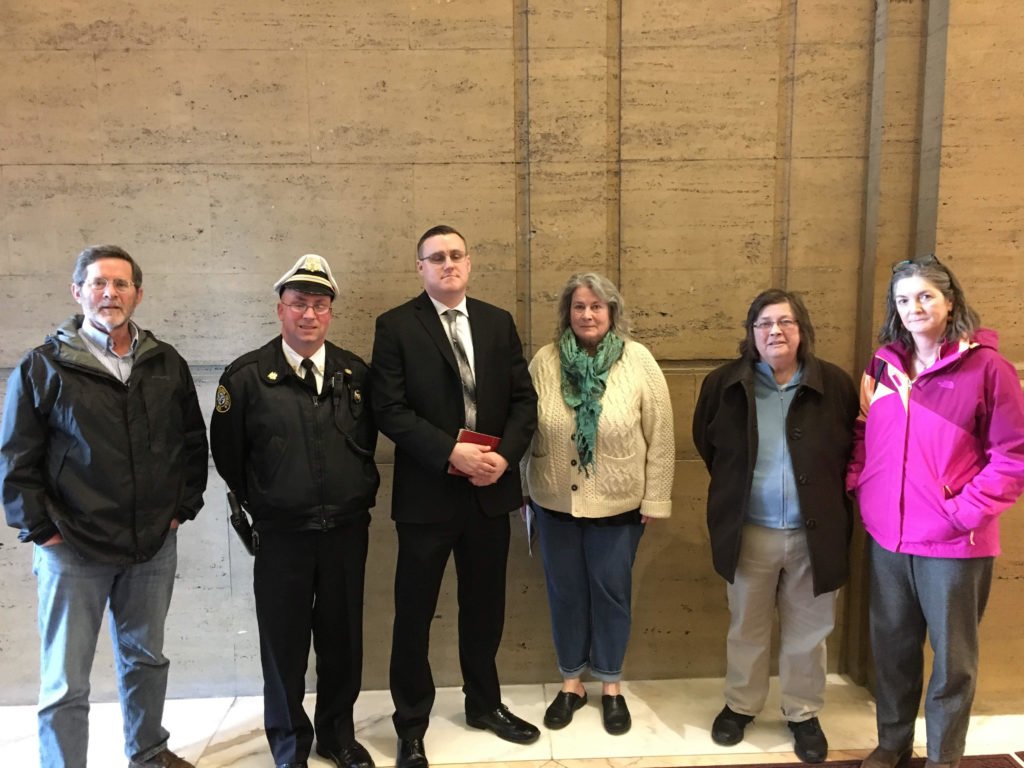
Families for Safe Streets and Philadelphia Police Department meet
The Police Department recently took two important steps this fall to promote Vision Zero. These steps address two out of five asks made by Families for Safe Streets Greater Philadelphia in its Serving Justice report issued in February 2019. First: the PPD’s Police Foundation approved a grant for the Accident Investigative Division to purchase a Crash Data Retrieval System software/hardware to read “event data recorders” (black boxes) of motor vehicles involved in crashes. Second: the PPD is now maintaining a publicly transparent Fatal Crash database of crash fatalities and status of AID’s investigation. This database, on OpenDataPHL, is an important advancement that 1) Documents traffic crash fatalities and victims in a real time fashion by AID and 2) Provides information on the AID’s decision about whether to charge, not charge, give a citation or if the case is continuing to be investigated.
The Bicycle Coalition was recognized at NJ Complete Streets Summit.
Left to right: BCGP board member Russell Meddin, Executive Director Sarah Clark Stuart, Research Director John Boyle
Amtrak changed their policy to allow bikes on the Philly to Pittsburgh train.
Loading bikes on the Piedmont Train in Raleigh, NC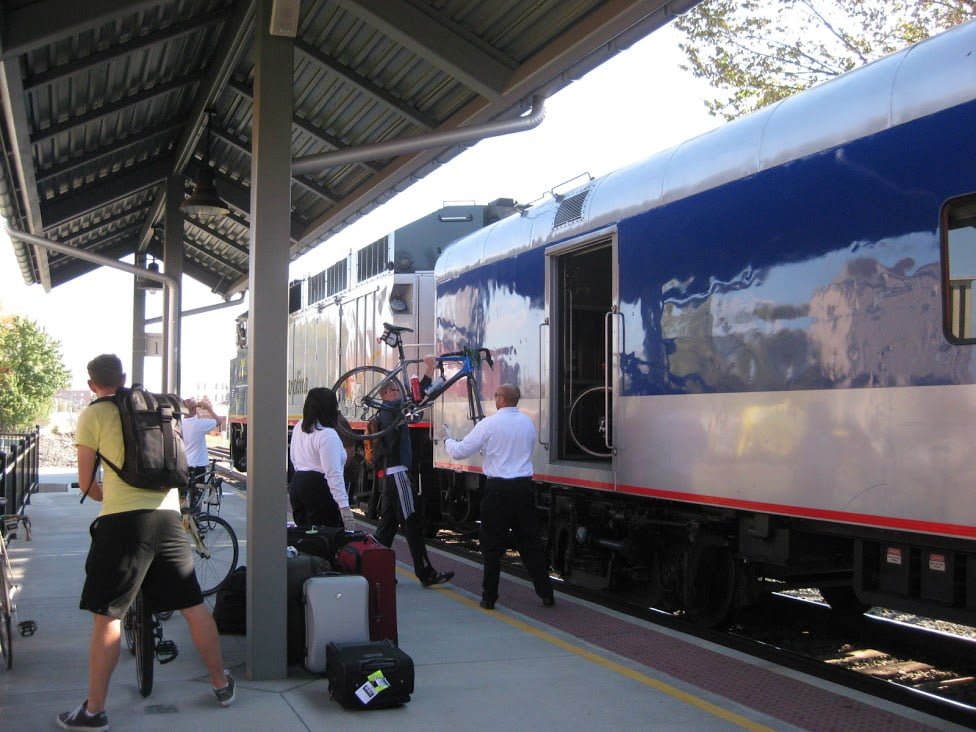
Our advocacy was highlighted in the City's 2-year Vision Zero report.
The second’s year’s results of Philadelphia’s Vision Zero program weren’t great. Total traffic fatalities increased over the second year of the program. But, among the highlights were projects the Bicycle Coalition of Greater Philadelphia helped organize, like Families for Safe Streets and the approval of speed camera legislation on Roosevelt Boulevard, the latter of which, as of this writing, has not yet been implemented due to some PennDOT hiccups.
After an action by Bicycle Coalition advocates, the DA appealed the case against driver who killed cyclist.

As many know, there is a case against the driver who killed 24-year old pastry chef Emily Fredricks for looking at papers while he struck the cyclist back in 2017. After a judge dismissed the case against the driver, cycling advocates sprang into action, holding a demonstration at the DA’s office. The DA decided to appeal the decision.
Athena trash hauling company made their trucks safer.

Some of the most dangerous vehicles on city streets are trash trucks. Not only are they huge and do they take wide turns, but pedestrians and cyclists can get stuck underneath them, between the front and rear wheels. So, local trash hauling company Athena took it upon themselves this year to install side guards on their trucks in the city, for the explicit purpose of making them safer for pedestrians and cyclists. That’s a big deal. Athena went on to co-sponsor our 2019 Vision Zero Conference and was a presenter. Though they are wholly concerned with their own drivers being as safe as possible, we believe, long-term, companies like Athena can be an example for businesses around Philadelphia to provide safety to all.
We held our biggest Vision Zero Conference yet.
We held our fourth Vision Zero Conference in March 2019 at Temple University and it was our biggest conference, yet. It was fantastic. Read about it here.
Society Hill started to fight back.
Bike lanes and intersections in Society Hill remain unprotected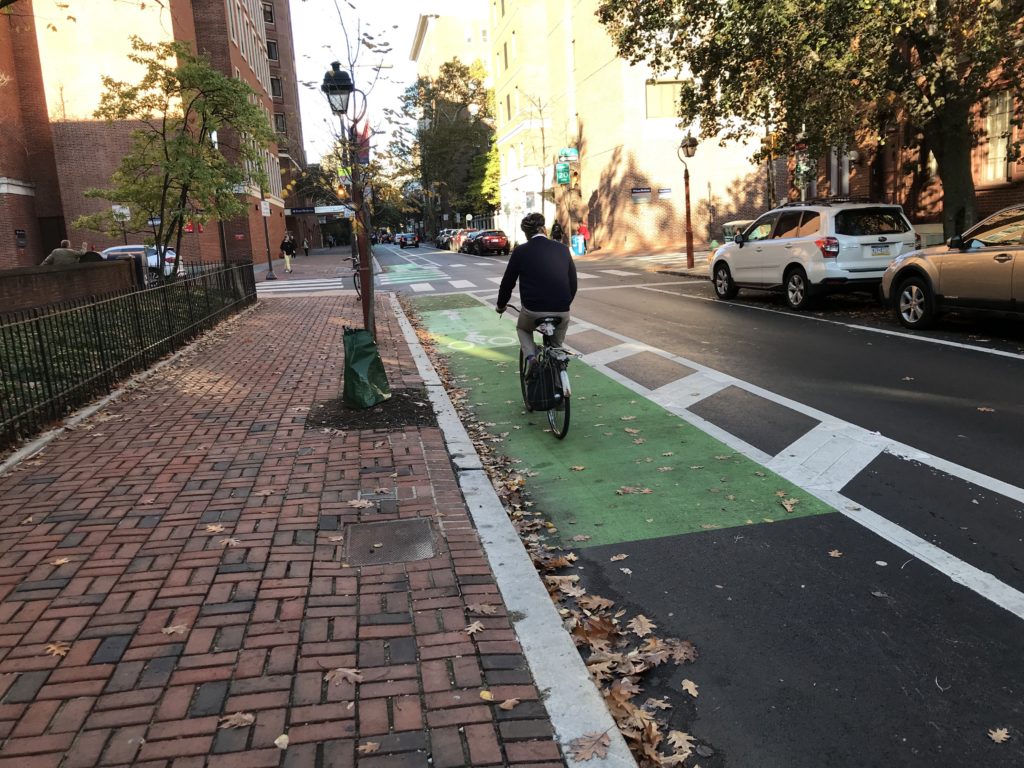
We supercharged our fight for 500 miles by 2025.
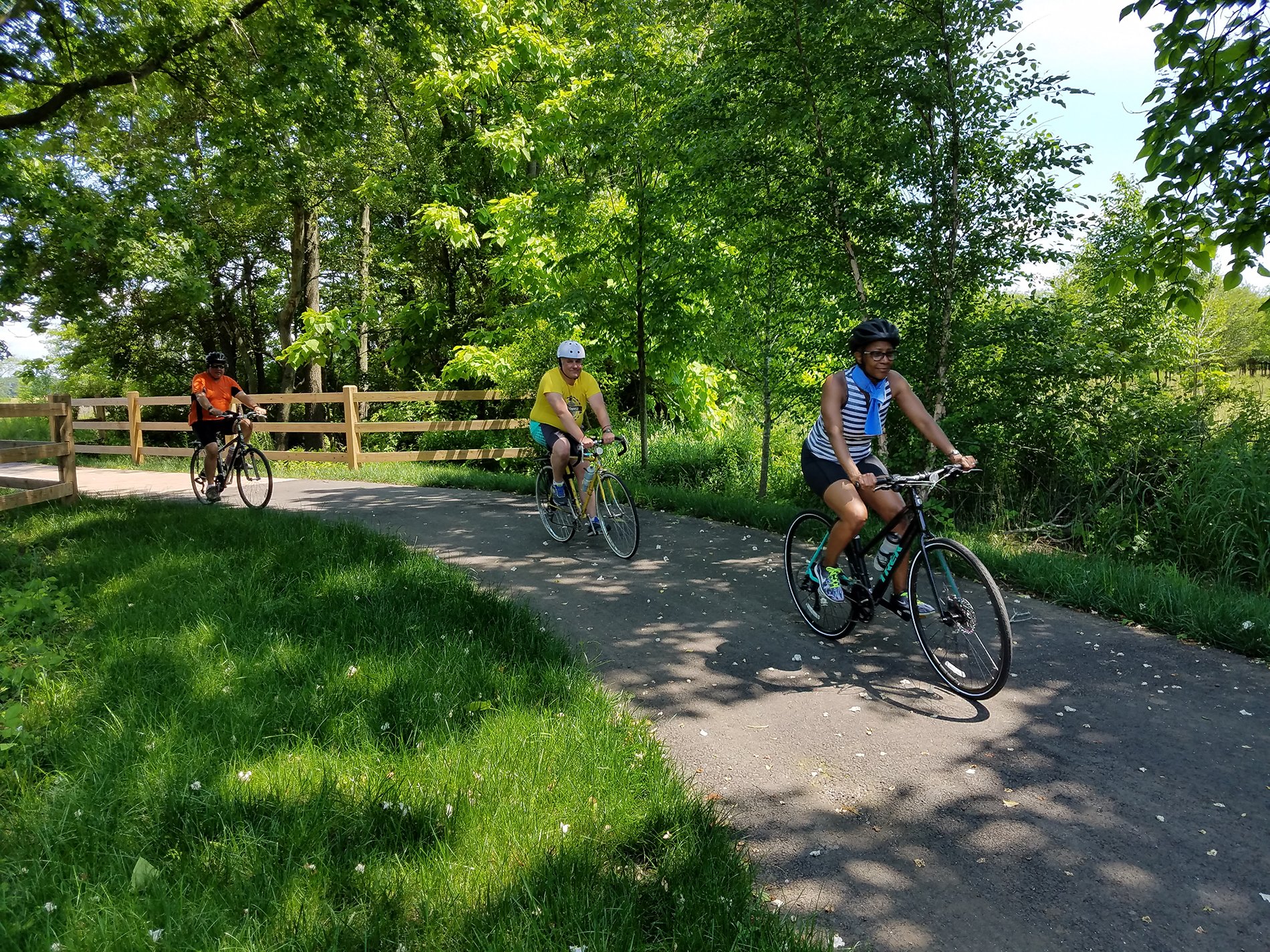
In partnership with the Circuit Trails Coalition, we wrote and published a report documenting the segments that the region should focus on to reach 500 miles of Circuit Trails by 2025 and a series of policy recommendations. That report will be made public in January 2020.
The Ben Franklin Bridge ramp opened!
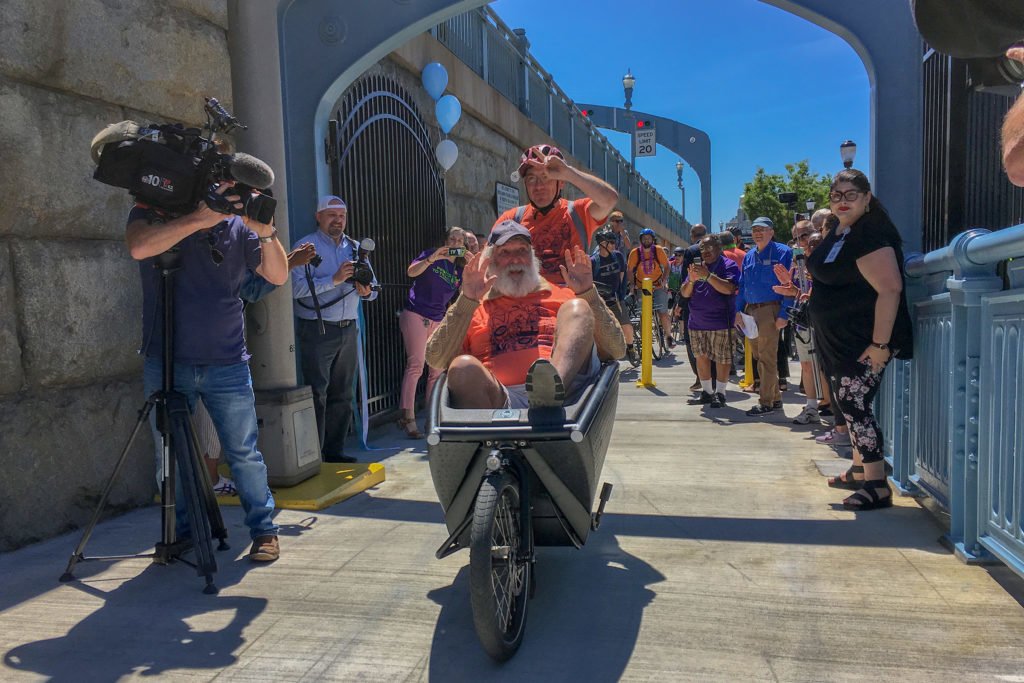
Delaware River Port Authority opened the new ADA ramp on the Camden side of the Ben Franklin Bridge walkway, capping 20 years of advocacy by John Boyle of the Bicycle Coalition of Greater Philadelphia. Counts on Ben Franklin Bridge show a 63 percent increase in users since the Camden ramp opened.
We got the ‘Dutch Reach’ in the PA Driver’s Manual.

A description of the Dutch Reach was added to the PA Driver’s Manual due to our advocacy with PennDOT’s Pedalcycle and Pedestrian Advisory Committee.
New regional bike lanes were approved.
More than six miles of bike lanes in Montco, Delco, Bucks and Chesco were approved by PennDOT District 6 to be installed in 2019 due in part to our advocacy. Six may not sound like a lot. But before the Bicycle Occupancy Permit requirement was overturned three years ago, there were zero bike lanes being installed each year. There will be more suburban bike lanes installed in the years to come.
Our second annual Active Transportation Forum in Camden was a success.

We held our second Active Transportation Forum at Rutgers-Camden, which attracted 100 attendees.
JFK/Market protected bike lanes were made permanent.
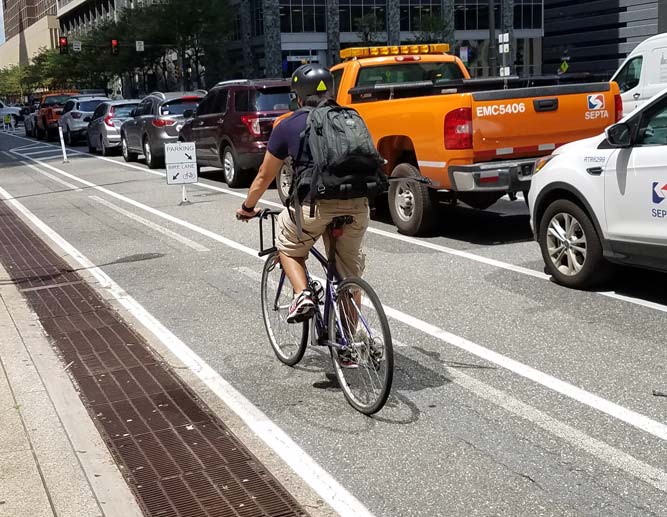
JFK/Market St. bike lanes were made permanent through an ordinance introduced by City Council President Clarke. This involved a lot of work, including studies of the corridor by the city, and partnerships with Council President Clarke’s staff.
11 more protected bike lane projects were approved for Philly.
BCGP policy manager Randy LoBasso testified at City Council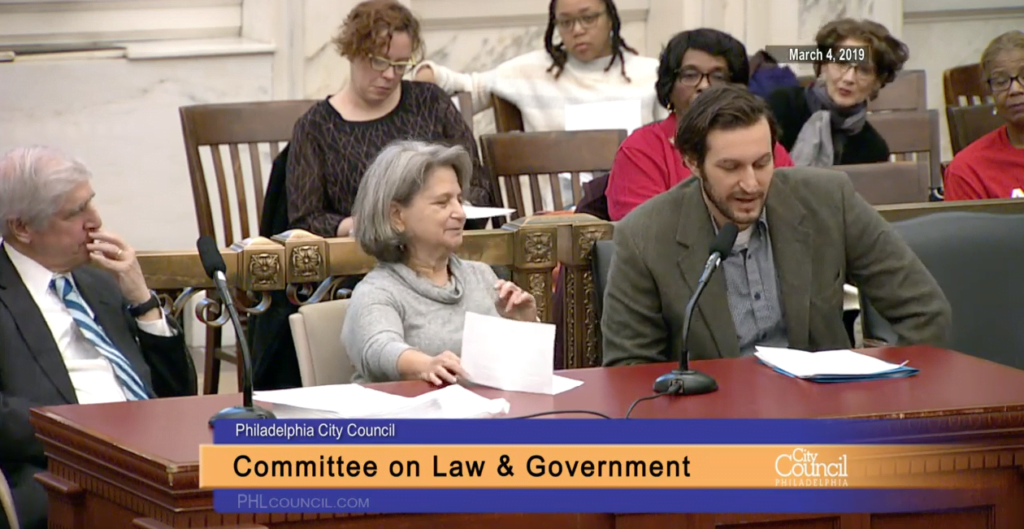
A Philly cyclist sued chronic bike lane blocker Julius Silvert.
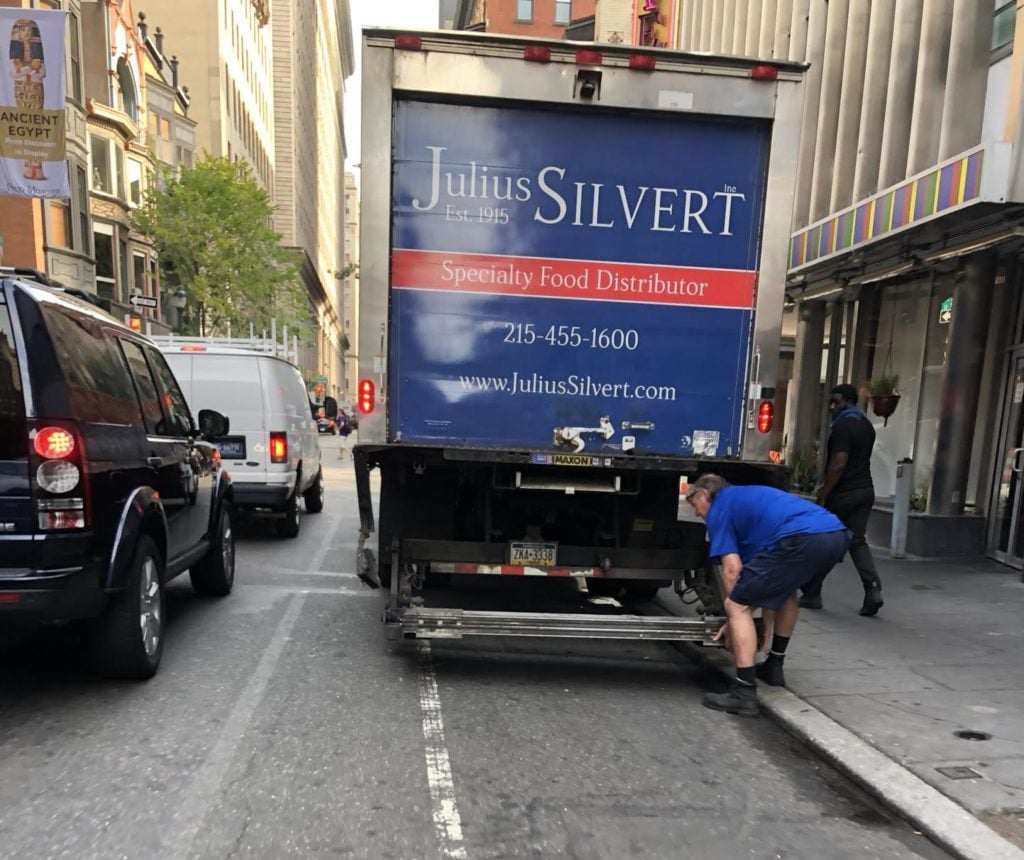
Julius Silvert, a company which delivers food to restaurants around the city, has become well known for blocking the 13th Street buffered bike lane. Every morning. During rush hour. Putting bicyclists’ and pedestrians’ lives at risk in the process. The city has plans to protect the bike lane — in 2020. So, after a series of meetings, we helped Stuart Leon Bicycle Crash Law organize a lawsuit against the company on behalf of bicycle commuter Oren Eisenberg. JSI Trucking, the trucking company owned by Julius Silvert, attempted to get the lawsuit thrown out. A judge denied their request. The suit continues.
A Philadelphia health department report said that bike infrastructure is good for the health of Philadelphians.
The City of Philadelphia’s Department of Public Health released a report titled “Close to Home: The Health of Philadelphia’s Neighborhoods,” detailing both the progress Philadelphia has made in public health terms, and improvements that still need to be made. “Support infrastructure for active transportation (walking and bicycling) and engineering changes to improve safety for pedestrians,” the report recommends. This may not seem like that big a deal, but such official statements were unheard of a decade ago.
We took our members to Harrisburg... many times.
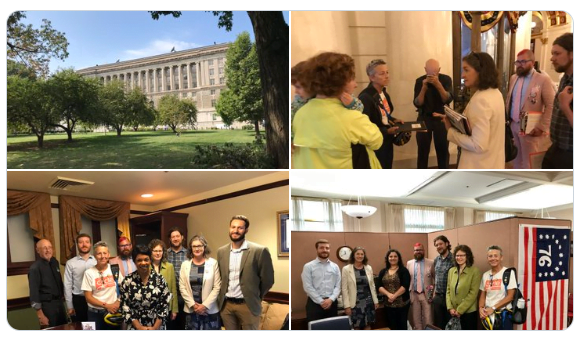
Sometimes, you gotta make a trip out to the state Capitol to make change. And we did that — a lot — in 2019. Along with volunteers, members of Families for Safe Streets Greater Philadelphia, Lancaster Bikes, and other organizations, we met with Representatives and Senators to advocate for better bicycling around Pennsylvania. Among the bills we lobbied for: Legislation which would better prioritize ‘vulnerable road users,’ legislation to legalize radar in Pennsylvania, and legislation which would help create more protected bike lanes. The first two pieces of legislation, as of this writing, have gotten through committee. The latter, as explained earlier, moved to the Senate.
Camden got a much-needed Bike/Ped Plan.
Camden City Council passed a resolution to apply for NJDOT’S Local Bicycle and Pedestrian Planning Assistance to develop a master plan for the city. The application was the result of a 3-year campaign to improve bicycle and pedestrian safety in the City from the Bicycle Coalition and the Tri-State Campaign, New Jersey Conservation Foundation Cooper Grant Neighborhood Association and concerned residents of the City. Why’d this happen? Because of the work we did with Coopers Ferry Partnership, the concept presentation, and the letter we co-authored, demanding a plan. Additionally, we worked with these same partners to create a bike/ped strategy document in 2016 that makes many recommendations to make Camden’s streets safe for all road users.
The Better Bike Share Partnership increased ridership by 23 Percent.

This year, the BBSP team hosted over 92 Classes and Community rides all-around greater Philadelphia, reaching over a total amount of 699 participants throughout its riding season. Thanks to its new Indego Champions Program, we increased our ridership by 23% percent, filled with new cyclists and advocates who are now part of this cycling community. Also, there was a high impact on our BBSP Bilingual Programming, thanks to the amazing work that both bilingual community liaison and the bilingual trainer did over the season. BBSP hosted over 22 bilingual events, reaching over 191 participants this year, which is a 29% increase from last year’s report.
The Newtown Rail Trail finally broke ground.
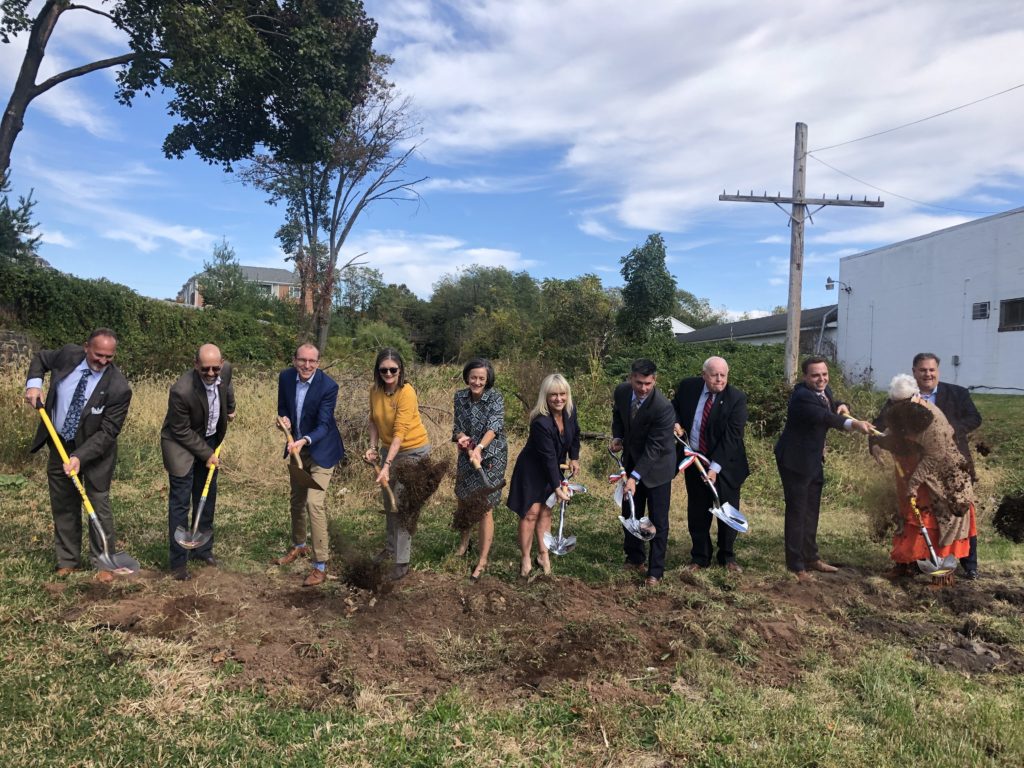
After years of waiting, on October 15th, Bucks County broke ground on the first section of the Newtown Rail Trail in Southhampton Township. This 2.5-mile, 12-foot-wide multi-use trail will connect Tamanend Park in Upper Southampton Township to the popular Pennypack Rail Trail in Montgomery County. Located on SEPTA’s former Newtown Branch, the trail will be part of The Circuit, an 800-mile bicycle circuit in the Delaware Valley. Construction is expected to be completed in 2020. A cooperative effort between Bucks County, Montgomery County and Upper Southampton Township, the project will cost approximately $2.4 million. Design costs were funded by PennDOT’s Act 13 Marcellus Legacy Fund, Montgomery County and the Regional Trail Fund funded by the William Penn Foundation and operated by the Delaware Valley Regional Planning Commission, and construction costs will be funded through PennDOT’s Congestion Mitigation and Air Quality Program.
Bonus: We released these awesome t-shirts 🙂

Admit it. You always wanted a t-shirt featuring Philadelphia Flyers mascot Gritty and a bald eagle holding a hoagie while riding a bike. Well, after such a long wait, we made it! Right up there with the “I Bike PHL” t-shirts, our Gritty rides an eagle t-shirts were a huge hit this year. We have a very limited supply left, so if you want one, click here!
